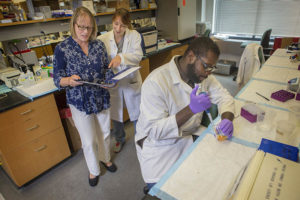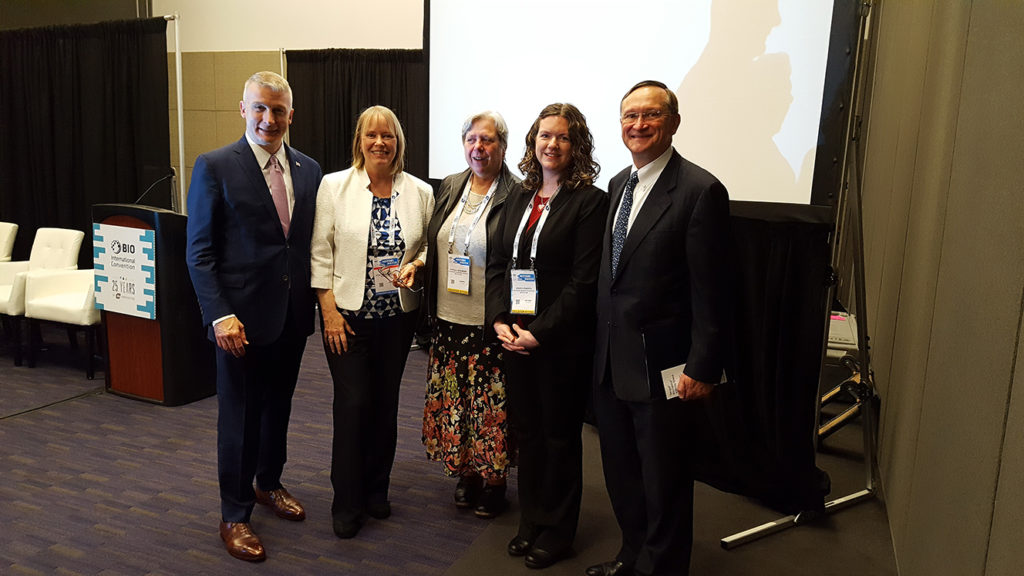Stony Brook University Happenings recently profiled the Center for Biotechnology’s designation as on of eight national accelerators under the Department of Health and Human Services’ (HHS) Biomedical Advanced Research and Development Authority (BARDA) Division of Research, Innovation and Ventures (DRIVe). Excerpt below, read the full article here.
Sepsis occurs when chemicals released into the bloodstream to fight an infection trigger inflammatory responses throughout the body. It’s dangerous and often deadly. According to the U.S. Department of Health and Human Services, more than 250,000 people die from sepsis each year, and it is a leading cause of hospitalization in the U.S.
What if a simple test could identify the onset of sepsis as soon as it occurs? Better yet, what if wearable technology was available to alert doctors about sepsis in a patient before they ever show symptoms?
This may be possible in the future thanks to Stony Brook University’s participation in the federal government’s new BARDA-DRIVe initiative.

Stony Brook, NY; Stony Brook University: Center for Biotechnology’s (CFB) Director of Operations Diane Fabel talks with Alyssa Tuthill, Instructional Support Associate/Biomedical Engineering Labs Manager while Graduate Research Assistant Vaughn Greene works with samples.
The initiative, launched by the Division of Research, Innovation and Ventures (DRIVe), will be overseen by the Department of Health and Human Services’ (HHS) Biomedical Advanced Research and Development Authority (BARDA).
BARDA has selected Stony Brook’s Center for Biotechnology as one of eight national accelerators across the country to assist in scouting faculty innovators and businesses that are developing health security technology that meets the program’s goals. The initiative plans to focus first on sepsis and the early detection and diagnosis of infections that threaten national health. More goals will be identified over time.
“National health security is essential for optimum public health, enabling our society to thrive,” said Stony Brook University President Samuel L. Stanley Jr. President Stanley is a biomedical researcher who specializes in emerging infectious diseases. He also chairs the Innovation Committee for the Long Island Regional Economic Development Council.
“With a proven record of research, discovery, innovation and product-development in the biomedical sciences, Stony Brook’s Center for Biotechnology is poised to become an important contributor to the BARDA-DRIVe initiative,” he said. “I am certain that the Center will advance and accelerate research discovery, and strategically collaborate with biotech companies to find solutions to better manage sepsis and emerging national health issues.”

